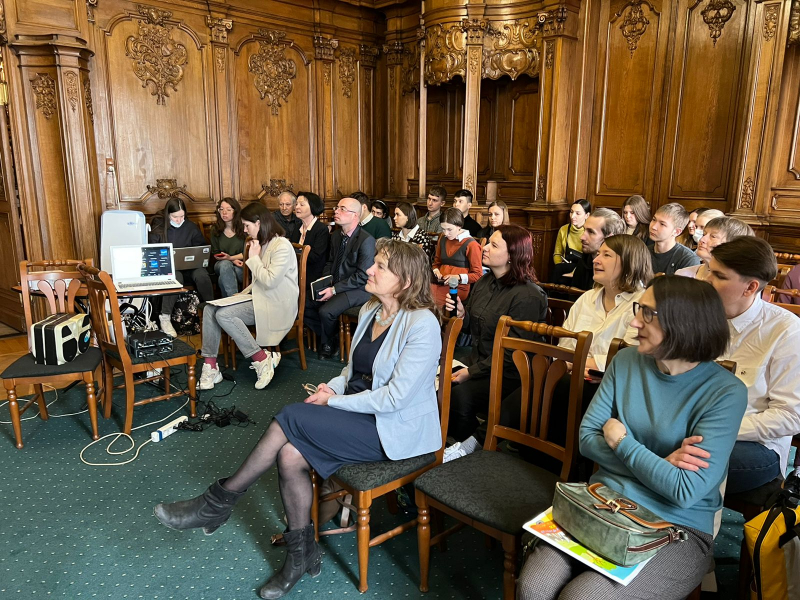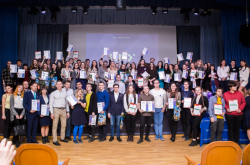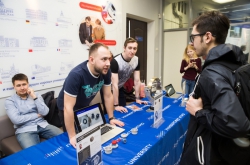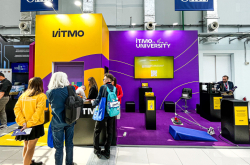The Congress of Young Scientists is an annual conference held at ITMO since 2004. Its goal is to help school and university students try their hand at “grown-up” science, hone their public speaking skills, and even publish their first journal articles via the CYS proceedings, which is included in the Russian Science Citation Index.
The congress is also one of the best ways to apply to ITMO, as the authors of the best reports are enrolled into the university’s programs without entrance exams. This year, 278 Master's students will enjoy this privilege. Meanwhile, school students who perform well on the report competition will automatically join the final stage of the ITMO.STARS contest and receive five bonus points when applying to the university’s programs.
This year, the subject areas remained the same, but became more detailed; the five main subject areas were split into 13 more narrow ones. That includes:
- Interdisciplinary Research (includes Digital Humanities, Evidence-Based Practices in Research and Science Communication, Art & Science & Technology, and Practice-Focused Scientific Creativity for Youth);
- Computer Technologies and Control;
- Life Sciences;
- Advanced Functional Materials in Photonics and Derivative Devices;
- Applied Photonics;
- Social Sciences and Humanities;
- Technological Management and Innovations;
- Translational Information Technologies;
- Physics;
- Chemical Engineering and Green Technologies;
- Chemistry and New Materials;
- Ecology and Sustainable Development;
- Energy-Efficient Engineering Systems and Sustainable Development.
The main change to the format of this year’s congress was that the reports by school students were not relegated to a separate session; instead, the youngest participants presented their work alongside university students and were also able to have their research published as part of the proceedings. According to Ekaterina Khorosheva, the head of Office for Conferences and Exhibitions, they approached the presentations with a great deal of responsibility:
“The school students delivered their reports alongside Master’s and PhD students, as well as young scientists. And now, as we collect reports for publication, they send us articles formatted according to every rule, along with expert reviews. For that, they needed to assemble their own expert committees at school, which is not a common practice,” she says.
Ekaterina Khorosheva. Photo by ITMO.NEWS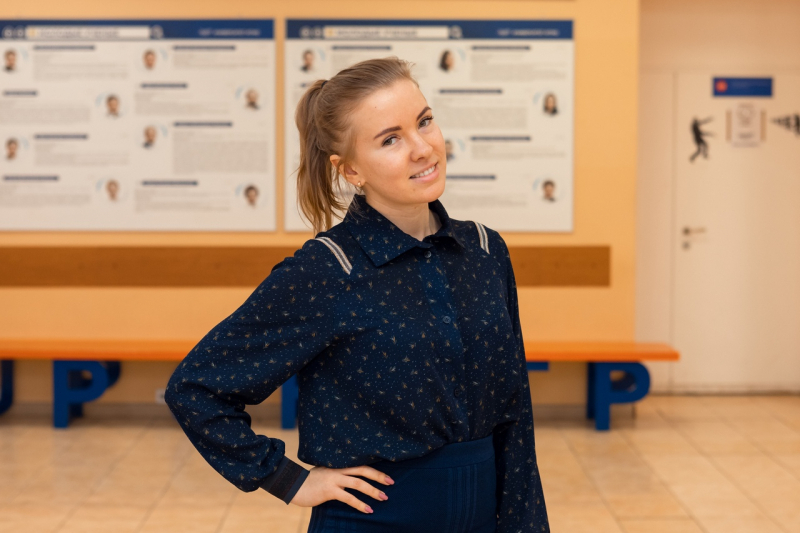
In keeping with last year’s practice, the event included useful workshops; though now, they were held not during the congress, but before it, so that the participants would have a chance to tune their presentations and practice their speeches. A workshop on voice work was held by Evgeniya Shestakova, a soft skills teacher at ITMO University; a workshop on visual design in presentations was held by Andrey Balkanskiy, a lead engineer at ITMO’s Center of Usability and Mixed Reality. The classes were held in small groups, with recordings published online immediately after. Participants could also join a meeting with a representative of the Zababakhin National Research Institute of Technical Physics to discuss prospects for internship and employment.
In addition, all who attended the event in-person were invited to a series of tours. Young scientists got to know about the inner workings of ITMO University and its research units (such as the Research and Development Center "Precision Electromechanics," the Research Center for Advanced Functional Materials and Laser Communication Systems, and Laboratory of Optoelectronic Hardware for Cyberphysical Systems); they also got to visit the Museum of Optics and the House of Scientists of the Russian Academy of Sciences.
All in all, the 64 sessions involved 380 PhD, 870 Master’s, 420 Bachelor’s, and 80 high school students, as well as 30 university staff. 278 participants won the prize for Best Report by Bachelor’s Student – they can now enroll in ITMO University’s Master’s programs without entrance exams. In the Best Report by Master’s Student track, 77 participants were named winners and received prizes from ITMO.Store and a workshop from the Foreign Language Teaching Center. Finally, in the Best Report by Young Scientists category, 55 winners were awarded the chance to publish their article in one of ITMO University’s four journals indexed by the Higher Attestation Committee.
